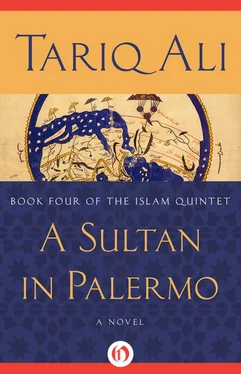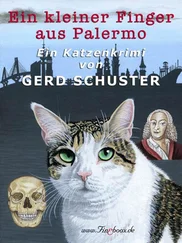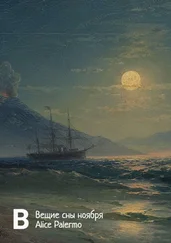‘But they did not succeed. The wiles of Artemis defeated them and they killed each other by mistake. Mother Earth was really upset, but refused to give up. She decided to create a big, new monster called Typhon. This monster had the head of an ass, with ears that reached the stars and giant wings that could block the sun, and hundred of snakes instead of legs. He breathed fire and when he reached Olympus the gods were terrified and fled. Yes, they ran away to Egypt. Zeus went disguised as a ram, his wife Hera as a cow, Apollo became a crow and Ares a wild boar. But the most intelligent and wisest was the goddess Athena. She refused to leave and called her father Zeus a coward. This angered him. He returned and hurled one of his famous thunderbolts at Typhon who was burnt in the shoulder and screamed for help. Then Typhon, in a rage, seized Zeus, disarmed him and handed him to a big she-monster called Delphyne. The other gods decided to rescue Zeus. With the help of the Fates, they poisoned Typhon. Then Apollo killed Delphyne and rescued Zeus. But Typhon was not dead. He was in Catania, alive but weakened. Zeus took a giant rock and hurled it on top of Typhon and that became your fire-mountain. Typhon is still there and his fiery breath sometimes rushes up and frightens everyone. Isn’t that a bit better than saying it’s the will of Allah?’
The boys clapped their hands in excitement.
‘Jiddu, did the Greeks really believe they could overthrow their gods?’
‘Yes. And then the Romans came and took over the gods, but the Romans went one step further and their Sultans decided that they could become gods themselves. And they did.’
‘How?’
‘By informing their people that they were gods and having great statues built in their honour.’
‘But we have only Allah,’ said Khalid, ‘and that’s much better because he is all-powerful. Nobody can overthrow him.’
‘That is true, my child,’ replied their grandfather, ‘but I think the Greeks had more fun with their gods.’
‘But did they really exist?’ asked Khalid.
‘If people believe in them, they exist.’
‘But Jiddu…’
‘Now listen to me. Go and have your baths and dress properly. I’m taking you to the palace today. You will meet the Sultan.’
As he went down the stairs, a retainer whispered that his two daughters wished to speak with him before he left the house. Samar and Sakina had heard the news about the trip to the palace from their sons and they assumed their father intended to ease the transfer of lands to the boys. So the brazenfaced women greeted their father cheerfully, showering him with honeyed words and asking his permission to return to their homes in Siracusa. A cold anger gripped him and made him unable to reply. Samar expressed concern. ‘Are you well, Abi? We can speak after your return.’
‘Sit down.’
They did as he asked.
‘I have just broken bread with Khalid and Ali. They are intelligent and thoughtful boys and I would like them to stay a bit longer so I can get to know them better. I want to teach them something important. In this house we honour truth. That’s what I wish to teach them.’
The women smiled appreciatively and nodded in agreement.
‘For that reason,’ he continued, ‘I have decided to ignore the lies you have told me about your husbands. Each and every word you spoke was an untruth and you were prepared to testify falsely with your hands on al-Quran. I was aware that Allah had not blessed you with too much intelligence, but your stupidity is truly monumental. And behind this dishonourable attempt an even higher level of stupidity than yours appears to be at work. Was this foolishness your mother’s idea? Answer me.’
Sakina began to weep tears as false as her earlier smiles.
Her father rose to dismiss them. ‘I wish you to return to your homes and forget this whole business. Are you not aware that the boys love the men you wish to defame? If I hear another word from you I will make sure you are severely punished.’
Shaken by this display of anger, Samar and Sakina fell on their knees before him and kissed his feet. Samar spoke in a broken voice. ‘Forgive us, Abi. You are correct. It was our mother’s idea. We will not mention it to another person as long as we live.’
Then Sakina, desperate to restore herself to her father’s favour, declared, ‘We will never speak untruth again.’
Idrisi was unbending. ‘You might as well say you’ll never eat again.’
‘Abi, a letter arrived from Walid.’
The shock almost felled him. He sat down again. ‘If this is another falsehood…’
‘It is not, Abi,’ Samar spoke to back up her sister. ‘We saw the letter.’
‘When did it arrive?’
‘A year ago,’ replied Sakina. ‘It was delivered to us by a merchant who had met Walid.’
‘Why was I not informed?’
The women bowed their heads and did not answer.
‘Who was the letter addressed to? Do not fear. Tell me the truth.’
‘To us,’ replied Samar, ‘but in it there was a sealed parchment for you. Our mother told us we should conceal it till you agreed to our plan.’
‘I assume you have brought it with you?’
She nodded and rushed to her room, returning with a sealed roll of paper. Taking it from her, Idrisi asked them to leave him alone. He inspected the document closely to ascertain whether it might have been opened and re-sealed but, to his surprise, it had not been tampered with. As he stamped on the seal and watched it crumble, his eyes moistened. Walid was alive. The clumsy calligraphy was reassuring. There could be no doubt that Walid was the author of what lay on the table before him. On another piece of papyrus with the letter Idrisi saw the outlines of a map, but which coast could this be? For a moment the mapmaker took precedence over the father. He clapped his hands. It was the southern coast of India, but drawn with much greater skill than his own.
‘Allah be praised,’ he said to himself. ‘The boy is more gifted than his father.’
Then he devoured the letter.
Most respected father, I hope this finds you in good health. I honour you and I love you. This is the third letter I am sending you. The first two were despatched through merchants who were on their way to Palermo. I asked them to deliver the letters to the palace, since I assumed they would reach you there. I have a feeling that they never reached you, because I know if they had you would have found a way of responding and I used to dream that your ship would enter this city of water and find me.
This letter I am sending with a seafarer who became a dear friend of mine on the first voyage and is now captain of his own ship. He is on his way to Siracusa. In my previous letters I asked you to forgive me for leaving without saying farewell. I did not want you to be worried or fearful on my behalf. I know how much you loved me and I did not want to let my absence become a permanent worry in your mind as yours is in mine.
I stopped travelling some years ago after I had endured some grim sorrows in my life. Now I am happy again and in the service of a very fine merchant, Master Soliman, who knows Palermo well from the stories of his grandfather who traded in silks and brought back many beautiful pieces of cloth from our city. Master Soliman does not travel any longer. He works mainly on curved clasps and silver necklaces for the ladies and, sometimes, gold cups for the palace. He is a very skilled craftsman and could make a silver planarian for your maps.
Father, I wish to see you, but I do not wish to return to Palermo. It will end badly for our people and I have no desire to witness more killings. As you know, it was the death of my mother’s brother that was the cause of my leaving. I am aware that you had nothing but contempt for him, but he was an affectionate man, always very kind to me and there was no real motive for his death, except robbery. The nobles who killed him knew he had no children and the land would revert to the Sultan, which it did and was handed over to the murderers. Here in the city of water there are not many Believers. Master Soliman, who is a Jew, thinks I might be the only follower of our Prophet who actually lives in this city. For that reason my presence is not threatening to anyone. I can’t remember if you ever visited Venice on your travels, but if you ever decide to come here you can find me in the home of the silversmith Soliman who is known to all. The little map that I send with this letter was made by me when I was a seafarer and I travelled a great deal on the Eastern and Western coasts of India. Peace be upon you, Father.
Читать дальше












